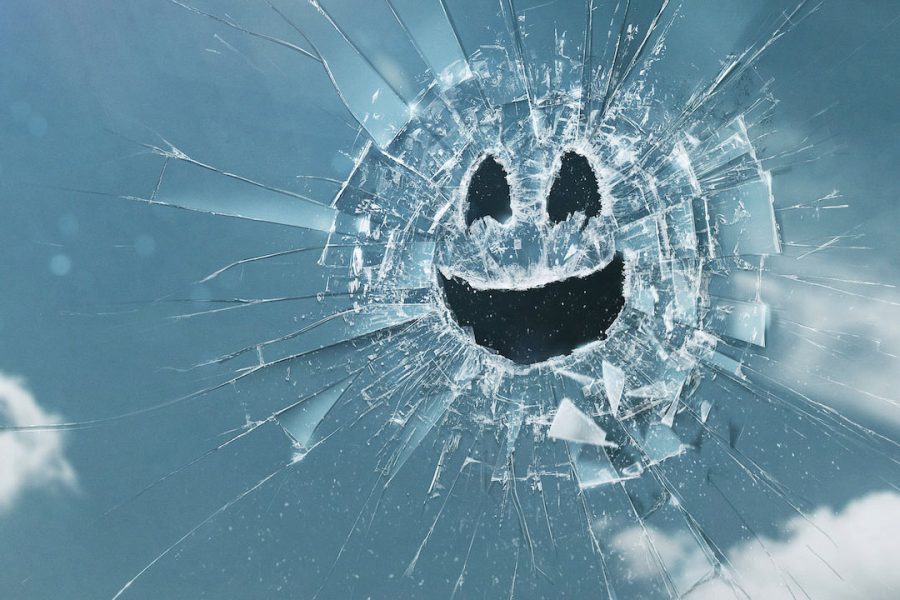Black Mirror Update in a Grim Reality
Charlie Booker, the creator of beloved social thriller anthology series ‘Black Mirror,’ spoke to Radio Times about updates for Season 6, particularly about the themes and material he plans to incorporate into the series’ intricate universe. Booker said he is not sure if audiences could bear to binge-watch a series about the gradual collapse of society due to rapid innovations in technology.
Many of the series’ best episodes, such as “Be Right Back” from Season 2, “USS Callister” from Season 4, “The Entire History of You” from Season 1 and “Nosedive” from Season 3, all tackle how technology alone is not a danger, but humanity and the ever-growing number of choices make it difficult to remain virtuous and ethical with the tech advances available to us.
One of the reasons “Black Mirror” has become such a treasured show is because the writers and creators are aware of the looming anxieties related to modern and future technologies and showcase these anxieties in a way that we can’t turn away and ignore. The problems in the show run parallel to the problems plaguing our own society.
“Nosedive,” in particular, is one of the episodes that had a so-called Simpsons effect—a term I’m choosing to coin right now. Remember when the internet freaked out about “The Simpsons” episodes from over fifteen years ago predicting everything from a Trump presidency to Disney’s acquisition of 20th Century Fox? We all believed a clever-adult animated FOX show had psychic power. It’s silly on the surface, but strangely disconcerting: that’s the Simpson’s effect.
The first episode of Season Three, “Nosedive,” tackled a toxic social media culture within a dystopian reality where everyone lives and breathes on a ranking system. The higher your rank, the more privileges you can access, and the lower your ranking is, the more likely you’ll be pushed to live in the outskirts of society as some sort of outcast. The main character Lacie Pound, played by Bryce Dallas Howard, even has a moment in the middle of the episode witnessing the decline of a coworker’s status after a messy breakup with another coworker. His points get so low that he’s denied access to work, and most likely ended up losing his job.
Although China’s social credit system was concocted in 2009, widespread implementation didn’t come until 2014 and global awareness and attention didn’t surface until late 2018. In this system, which eerily mimics the one featured in “Nosedive,” Chinese citizens are given a social credit score based on following the law and personal deeds. For example, being caught crossing the street illegally or failing to pay rent on time could cost you points and ultimately lead to restrictions of certain rights. Those with scores that are too low are barred from buying train or plane tickets, as well as premium insurance and real estate.
What’s fascinating is that none of the creators of this particular episode cited the system as inspiration; it was more an introspective look at current ranking systems on popular rideshare and food delivery apps.
This was the show’s first instance of the Simpson’s effect, and what’s frightening is the possibility of more of the episode’s technological gadgets coming to fruition. If one country is already contemplating launching a social credit system on a national level, who’s to say others won’t follow in their footsteps?
In one of the more extreme instances of technology creating a foreseeable dystopian reality, “The Entire History of You” presents a world where a small implant tracks your every move. Similar to the smartphone, what the episode refers to as the “grain” is viewed as a vital resource for national security as well as keeping a detailed log of every moment of your life.
Yet, what we see in the episode are increased levels of detachment from reality from people who want to constantly relive the “best” moments of their lives instead of living in the moment. Characters could peek into past relationships to relive their favorite sexual encounters, rewatch legendary concerts they attended or even pick apart their partner’s every move and facial cues to decipher their inner thoughts.
Watching these episodes and noting how complacent society is to implement such technologies for the sake of innovation and convenience, you ask yourself, “What’s stopping us from walking down the same path?”
In our current global crisis, vast inequalities that have been brought to light throughout the pandemic have psychologically altered our perceptions of society for the better. Many of us can see why our capitalist system thrived pre-pandemic and how it’s failing to support citizens from the bottom up.
I agree with Booker: our world is a little too dark for a normal “Black Mirror” season, and honestly, it would probably just make most of us—myself included—sob uncontrollably and enter a state of existential dread. Booker said that he’s been revisiting his love for comedy and writing scripts for the show that reflect that, so hopefully when the series returns to Netflix, we’ll be laughing rather than crying.


